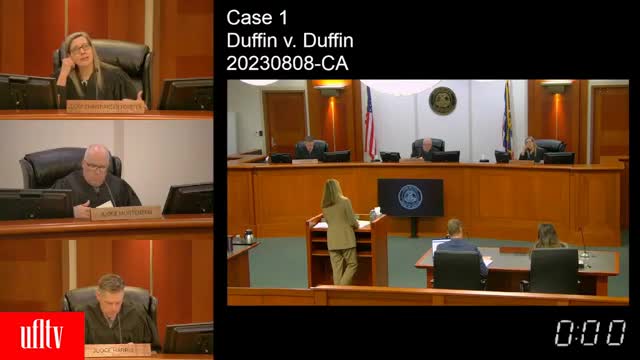Appellate Judges Discuss Legal Discretion in Parenting Decisions
July 26, 2025 | Utah Appellate Court Collection, Utah Family Law District Court Collection, Utah District Courts, Utah Judicial Branch, Utah
This article was created by AI summarizing key points discussed. AI makes mistakes, so for full details and context, please refer to the video of the full meeting. Please report any errors so we can fix them. Report an error »

In a recent session of the Utah Court of Appeals, judges engaged in a thought-provoking discussion regarding the nuances of legal discretion in parenting decisions. The courtroom, filled with the quiet anticipation of those seeking clarity on family law, became a stage for a deeper exploration of how the law delineates between major legal decisions and everyday parenting choices.
One judge raised a critical point about the boundaries of legal authority, questioning how appellate courts should navigate the delicate balance between legal standards and the discretion afforded to trial courts. "If we're drawing lines about what is legal and what is not," the judge pondered, "where does the discretion of the trial court come into that?" This inquiry highlighted the complexity of family law, where decisions can range from significant custody arrangements to minor day-to-day parenting choices.
The conversation shifted to the distinctions between "day care" and "parental care," emphasizing the importance of understanding the legal framework that guides these decisions. The judges acknowledged that while the law provides a preference, the reality of parenting often involves a spectrum of choices that may not fit neatly into legal categories. "Are we doing day care or are we doing parental care?" one judge asked, illustrating the need for clarity in how these terms are defined within the legal context.
As the judges deliberated, it became clear that their role as appellate judges is not just to interpret the law but also to ensure that the legal system respects the practical realities of parenting. They recognized that while some decisions may require strict legal scrutiny, others might benefit from the flexibility of trial court discretion, allowing families to navigate their unique circumstances.
This discussion not only sheds light on the intricacies of family law in Utah but also raises important questions about how the legal system can best support families in making decisions that affect their lives. As the judges continue to reflect on these issues, the implications of their rulings will resonate throughout the community, shaping the future of parenting law in the state.
One judge raised a critical point about the boundaries of legal authority, questioning how appellate courts should navigate the delicate balance between legal standards and the discretion afforded to trial courts. "If we're drawing lines about what is legal and what is not," the judge pondered, "where does the discretion of the trial court come into that?" This inquiry highlighted the complexity of family law, where decisions can range from significant custody arrangements to minor day-to-day parenting choices.
The conversation shifted to the distinctions between "day care" and "parental care," emphasizing the importance of understanding the legal framework that guides these decisions. The judges acknowledged that while the law provides a preference, the reality of parenting often involves a spectrum of choices that may not fit neatly into legal categories. "Are we doing day care or are we doing parental care?" one judge asked, illustrating the need for clarity in how these terms are defined within the legal context.
As the judges deliberated, it became clear that their role as appellate judges is not just to interpret the law but also to ensure that the legal system respects the practical realities of parenting. They recognized that while some decisions may require strict legal scrutiny, others might benefit from the flexibility of trial court discretion, allowing families to navigate their unique circumstances.
This discussion not only sheds light on the intricacies of family law in Utah but also raises important questions about how the legal system can best support families in making decisions that affect their lives. As the judges continue to reflect on these issues, the implications of their rulings will resonate throughout the community, shaping the future of parenting law in the state.
View full meeting
This article is based on a recent meeting—watch the full video and explore the complete transcript for deeper insights into the discussion.
View full meeting

